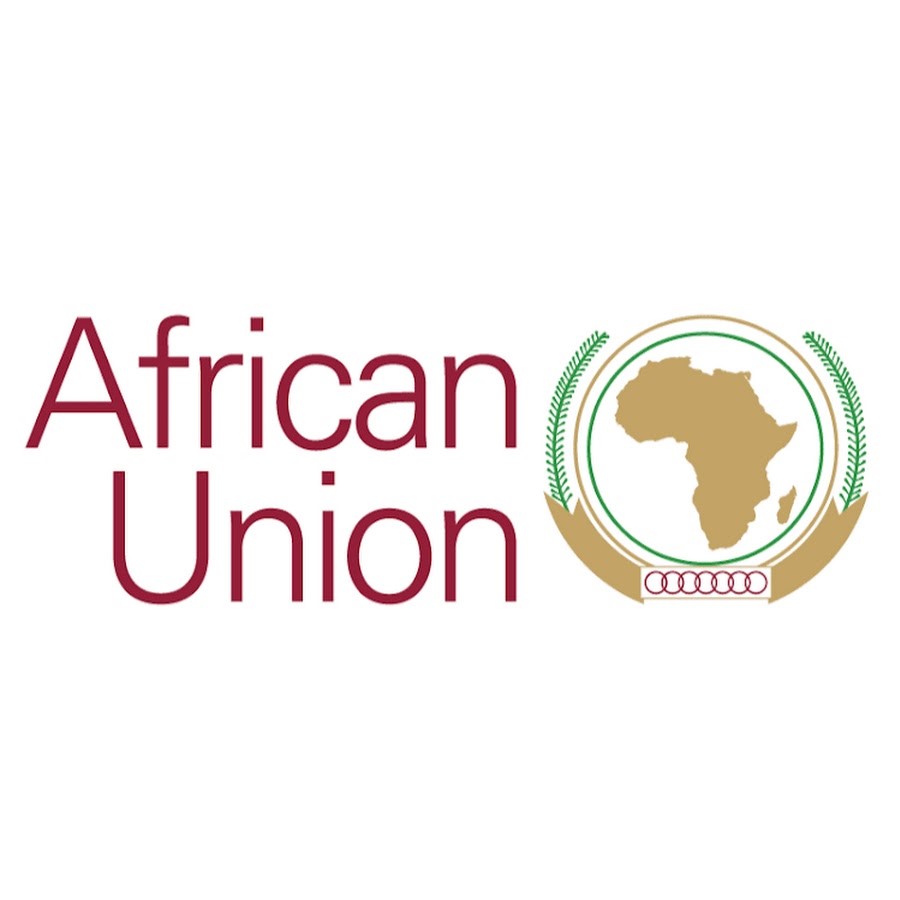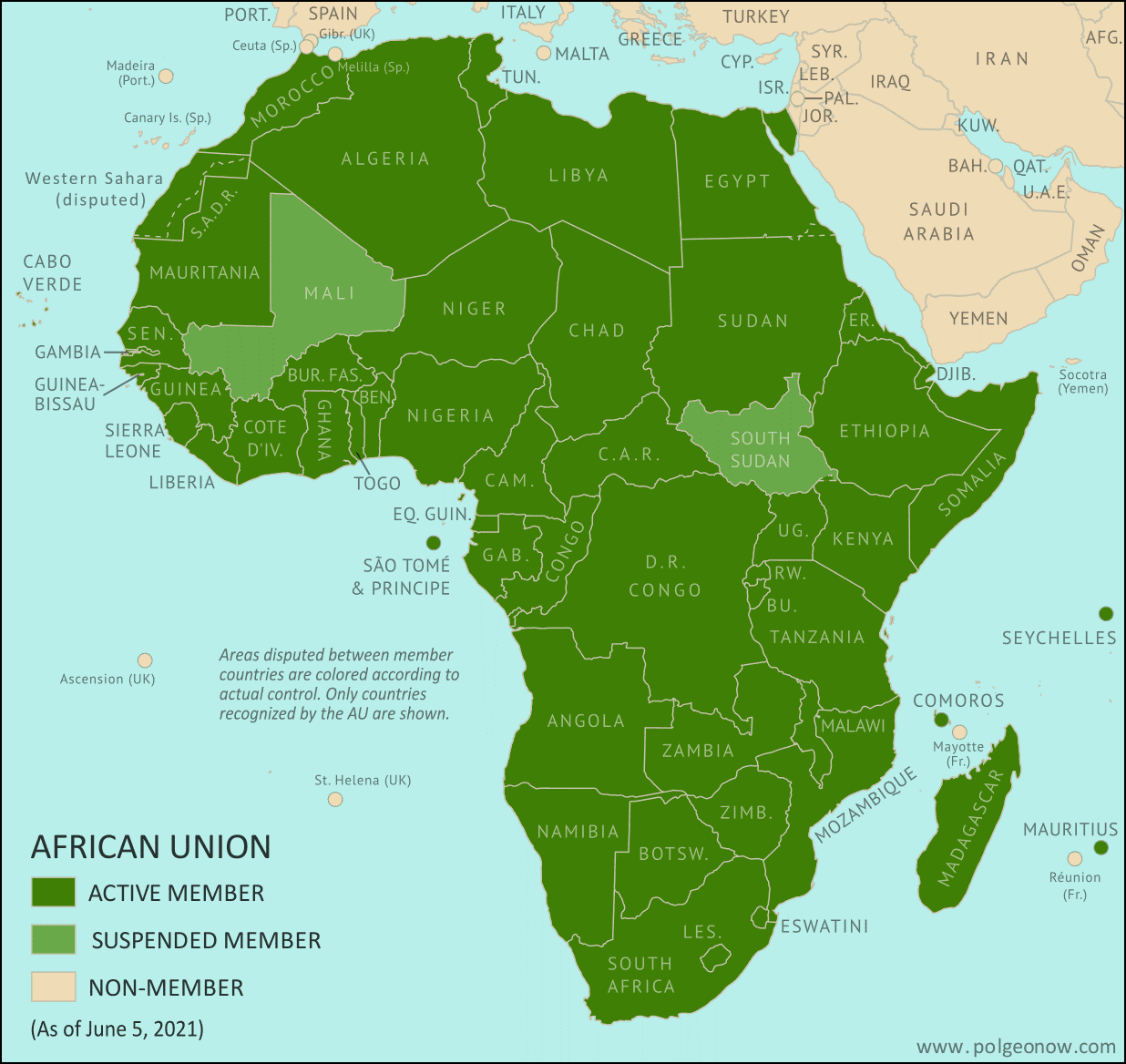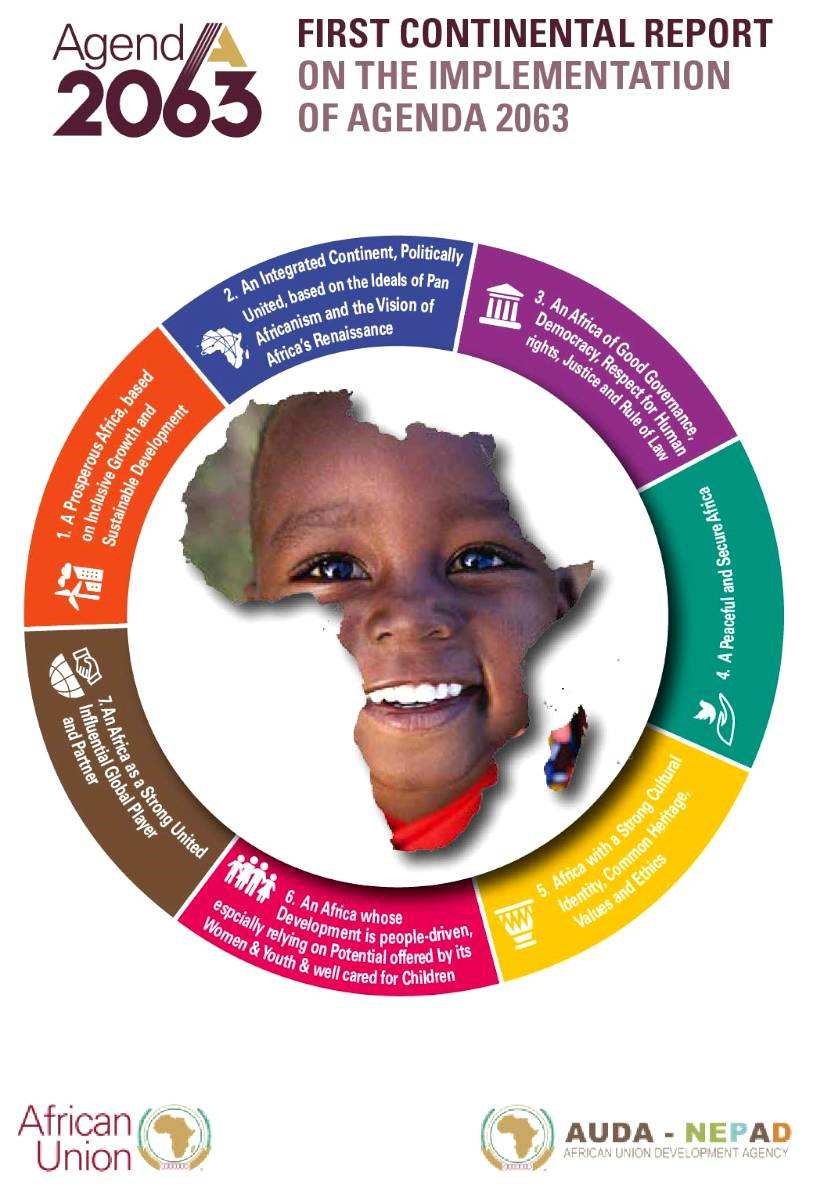
Disclaimer: Copyright infringement not intended.
Context
- Prime Minister Narendra Modi's proposal to make the African Union a permanent member of the G-20 has received an overwhelming response from the grouping.
African Union (AU)
About
- The African Union (AU) is an intergovernmental organization that works on increasing cooperation, stability, and development within the continent of Africa.
Announcement
- The AU was announced in the Sirte Declaration in Sirte, Libya, on 9 September 1999, calling for the establishment of the African Union.
Founding and Launch
- The bloc was founded on 26 May 2001 in Addis Ababa, Ethiopia, and launched on 9 July 2002 in Durban, South Africa.
Vision
- The AU is guided by its vision of "an Integrated, Prosperous, and Peaceful Africa, driven by its own citizens and representing a dynamic force in the global arena."
Aim
- The AU aims to -----
- Achieve greater unity and solidarity between African countries and their people;
- Defend the sovereignty, territorial integrity, and independence of its member states;
- Promote democratic principles and institutions;
- Popular participation and good governance;
- Ensure the effective participation of women in decision-making, particularly in the political, economic, and socio-cultural areas; and
- Encourage international cooperation.
Objectives of AU
- To achieve greater unity, cohesion, and solidarity between African countries and African nations.
- To defend the sovereignty, territorial integrity, and independence of its Member States.
- To accelerate the political and social-economic integration of the continent.
- To promote and defend African common positions on issues of interest to the continent and its peoples.
- To encourage international cooperation, taking due account of the Charter of the United Nations and the Universal Declaration of Human Rights.
- To promote peace, security, and stability on the continent.
- To promote democratic principles and institutions, popular participation, and good governance.
- To promote and protect human and peoples' rights in accordance with the African Charter on Human and Peoples' Rights and other relevant human rights instruments.
- To establish the necessary conditions which enable the continent to play its rightful role in the global economy and in international negotiations.
- To promote sustainable development at the economic, social, and cultural levels as well as the integration of African economies.
- To promote cooperation in all fields of human activity to raise the living standards of African people.
- To coordinate and harmonize the policies between the existing and future Regional Economic Communities for the gradual attainment of the objectives of the Union.
- To advance the development of the continent by promoting research in all fields, in particular in science and technology.
- To work with relevant international partners in the eradication of preventable diseases and the promotion of good health on the continent.
The AU is a multi-issue-focused organization. The tools it uses to achieve its objectives include diplomatic, humanitarian, and security missions.
Headquarter
- The organization is headquartered in Addis Ababa, Ethiopia. (Ethiopia is the only African country that the European empires never colonized, and is also the second most populous country on the continent.)

Composition
- At its inception in 2002, the African Union consisted of 53 members.
- Two more members joined in the years that followed, bringing the total to 55 countries.
- The African Union is made up of both political and administrative bodies.
- The highest decision-making organ is the Assembly of the African Union, made up of all the heads of state or government of member states of the AU.
- The AU also has a representative body, the Pan-African Parliament, which consists of 265 members elected by the national legislatures of the AU member states.
- The implementation of AU policy is monitored by the Executive Council, which is composed of ministers of member states.
- Then there are ten specialized committees, each focusing on specific issues. For example, there is The Committee on Monetary and Financial Affairs and the Committee on Cooperation, International Relations, and Conflict Resolution.
- The Peace and Security Council is the decision-making body on conflict. Through it, AU member states collectively monitor and make decisions on conflict and crisis situations and take collective action to both prevent and resolve conflicts.
Other political institutions of the AU include:
- The Executive Council, made up of foreign ministers, prepares decisions for the Assembly;
- The Permanent Representatives Committee, made up of the ambassadors to Addis Ababa of AU member states; and
- The Economic, Social, and Cultural Council (ECOSOCC), a civil society consultative body.

The African Union’s Achievements
Peacekeeping Operations
- The African Union has the right to intervene militarily in its member states in circumstances of war crimes, genocide, and crimes against humanity.
- To this end, the organization has carried out peacekeeping operations on multiple occasions. AU peacekeeping operations often work in coordination with United Nations (UN) missions.
Protected People from Violence
- African Union efforts helped avert catastrophes and protected people from violence in Burundi, the Central African Republic, Comoros, Darfur, Somalia, South Sudan, Sudan, and Mali.
Peace Deal
- The AU’s diplomatic efforts have resulted in success on multiple occasions.
- For example, in October of 2022, the African Union organized negotiations in South Africa that resulted in a peace deal between the Ethiopian government and the Tigray Peoples’ Liberation Front.
Protect and Promote Democracy
- The African Union has also acted successfully to protect and promote democracy throughout the continent.
- For example, when violence broke out in Kenya following the 2007 elections, an African Union-led mediation effort contributed to ending the violence and the creation of a coalition government.
Health Initiatives
- African Union health initiatives have netted considerable results. For example, the African Vaccine Acquisition Task Team, established in 2020, secured over 1 billion doses of vaccines to be distributed among member states. Initiatives against AIDS and Malaria have also resulted in fewer people being infected across the continent.
African Continental Free Trade Area (AfCTFA)
- The African Continental Free Trade Area (AfCTFA), which had been in the works for nearly two years, was ultimately launched in 2020.
- According to the World Bank, the AfCTFA will create the world's largest free trade area, with 1.3 billion people connected. AfCTFA's success has the ability to lift 30 million people out of poverty.
Peace Negotiations
- The AU has been actively involved in peace negotiations in perpetually war-torn regions such as Libya.
Proclamation on Gender Equality
- The African Union also pushed for a 10-year continental proclamation on gender equality and women's empowerment, which was implemented in February 2020.
- This proclamation commits African leaders to work on gender equality in the pursuit of sustainable development at the national, regional, and continental levels.
Issues
Political impasses
- Keeping over 50 countries united and agreeing on policy is complicated. Political impasses caused by pushes to reform the organization have impeded the AU’s functioning since its inception.
Influence of leaders
- Between 2002 and 2010, Qadhafi and his allies’ relentless arguing for a union government paralyzed political debate.
- The vast majority of member states did not want to surrender sovereignty to the extent the Libyan leader envisioned.
- Despite this reluctance by the majority, Qadhafi’s influence in the organization as its spiritual founder and major funder kept the debate stuck for years.
Questionable Decisions
- The African Union’s leadership has also made some questionable decisions to protect heads of state accused by the International Criminal Court (ICC) of killing civilians and committing genocide.
- For example, in 2010, the AU declared it would not cooperate with the ICC to arrest the Sudanese president Omar al-Bashir, whom the ICC holds responsible for genocide in Darfur.
- Similarly, the AU refused to cooperate with the ICC in bringing Kenya’s president Uhuru Kenyatta to court for his alleged involvement in the killing of thousands of civilians.
Funding
- Funding has also been an issue throughout the African Union’s existence. Contributions by member states constitute only a small part of expenses. Financing by external partners accounts for approximately 75% of the total budget.
- This reliance on external partners for funding undermines the AU’s decision-making capacity. In 2021, for example, the EU adopted new financial tools that allow it to bypass the AU when funding national and sub-regional military initiatives.
No end in sight for conflicts
- The AU is making some peace efforts in Somalia and in Sudan's Darfur region. But conflicts by non-state actors such as jihadi insurgencies in northern Mali and the Lake Chad basin, the Anglophone Ambazonia separatists in Cameroon, and the war in Libya have turned Africa into a greater theater of conflict than ever before.
- The AU's Constitutive Act allows it to intervene in the case of internal conflicts, such as in Cameroon and Libya.
- Yet even though its 'Silencing the Guns by 2020' initiative was launched to achieve a conflict-free Africa, the AU is failing to act.
- Especially in Libya, where the conflict has drawn in other countries like Egypt, Turkey, United Arab Emirates, and Russia, the presence of military armies on the continent should be of concern to the organization.
Failure to push for a UN seat
- But perhaps the AU's biggest shortfall, until now, is its failure to push for a permanent seat on the all-powerful United Nations Security Council.
- A permanent seat would give it more clout to play a bigger role in UN discussions since many decisions taken at the UN headquarters in New York adversely affect the continent.
China concerns
- Lack of funds to run the AU is another sticking point requiring urgent remedy.
- Because countries in sub-Saharan Africa are struggling to tackle abject poverty, many have resorted to acquiring massive loans from China that they can hardly afford to repay.
- This means they don't have much left over for the AU, making it hard for the organization to fund some of its ambitious plans. Moreover, China financed the new AU headquarters to the tune of $200 million (€180 million).
The crux of all the identified challenges in African Union member states is insecurity and incessant conflicts, overdependence on foreign Aids, corruption, political instability/inept leadership, inadequate infrastructural development, still narrowed down in all and majorly to lack of good governance.
The African Union’s Future

- In 2013, exactly 50 years after the foundation of the Organisation of African Unity, the African Union started drawing up plans for the next five decades. This resulted in Agenda 2063, an initiative consisting of 15 flagship projects.
- The projects include plans for a high-speed train network connecting all African capitals and commercial centers, removing all visa requirements for moving within the union, and ending all wars on the continent.
- Agenda 2063 efforts over the next decade will focus on constructing roads and communication infrastructure, increasing agricultural production, and generating more energy.
- To avoid a repeat of the discarded Lagos Plan of Action it is important that the AU aligns the agenda with its values of self-reliance and inclusiveness.
- To achieve this, the Agenda 2063 agency needs to expand its consultation with civil society and stakeholders of member states.
- This would increase participation by member state citizens, improve the sharing of information and tighten up accountability.
- The African Union has faced many challenges since its formation twenty years ago, and the results of its initiatives have varied greatly.
- Funding for projects is one of the biggest challenges facing the AU. It still depends on external funding for its own operations. A solution would be a binding institutional arrangement where members have to contribute funds and there are penalties for not doing so.
- Large-scale projects like the African Continental Free Trade Area, one of the flagship projects of Agenda 2063, have the potential to improve the lives of millions of Africans.
- The successful implementation of AfCFTA over the last few years is a reason to be hopeful for the future.
- The AU has had a shaky two decades burdened with intertwined problems of governance, external dependence and poor capacity. But these problems are not insurmountable. A prosperous and united Africa is within reach if the AU addresses its core problems and fosters more participation of member-state citizens.
.jpg)
https://www.thehindu.com/news/national/overwhelming-response-to-pms-proposal-of-making-african-union-permanent-member-of-g-20-amitabh-kant/article67112879.ece
|
PRACTICE QUESTION
Q. The African Union (AU) has had a shaky two decades burdened with intertwined problems but these problems are not insurmountable and a prosperous and united Africa is within reach if the AU addresses its core problems and fosters more participation of member state citizens. Shed light on African Union’s Achievements. Also, highlight the issues plaguing the AU and suggest a suitable way forward.
|
https://www.thehindu.com/news/national/overwhelming-response-to-pms-proposal-of-making-african-union-permanent-member-of-g-20-amitabh-kant/article67112879.ece






